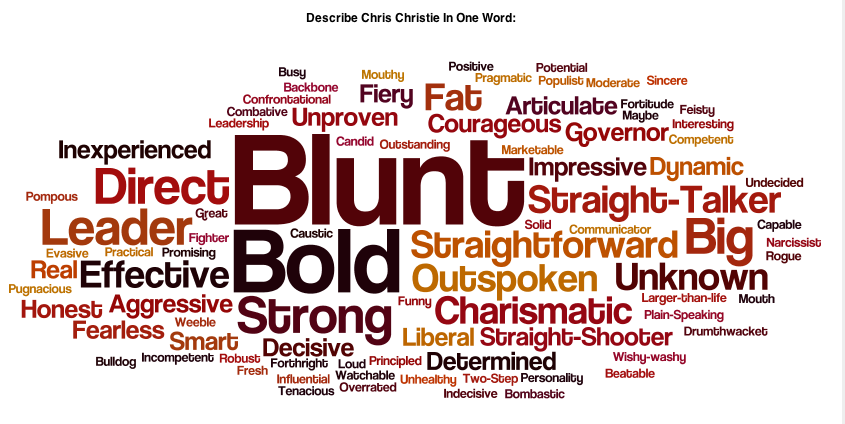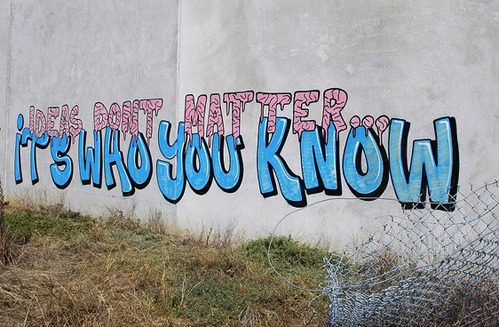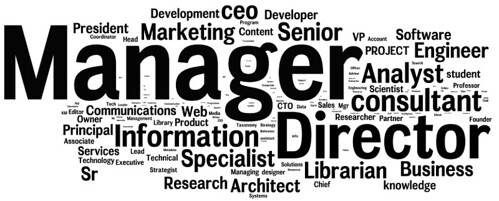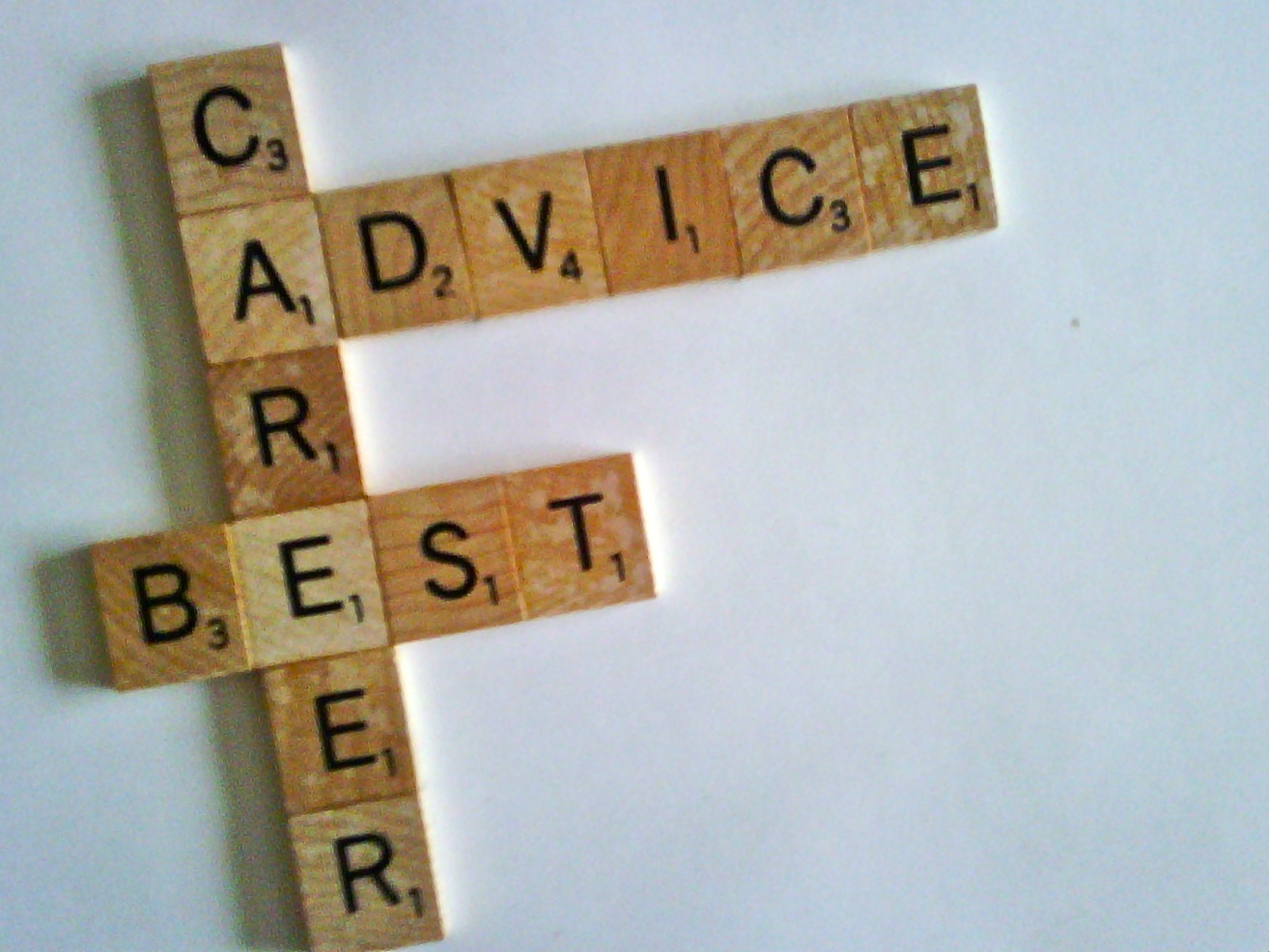Do you consider yourself aggressive and do others think of you that way? I'm mainly talking about being pushy and impatient at work and in relationships, willing to alienate people for what you perceive as a larger good, but not necessarily physically aggressive.
If that sounds like you, I'd like to interview you for possible inclusion in a book, Bulldozers: A Guide for Aggressive People and Those Around Them. Email me to briefly say why you think you are aggressive: mnemko@comcast.net. Include your phone number and the best times to reach you.
Saturday, August 31, 2013
Monday, August 26, 2013
Assess Your Employability
Your answers to 12 questions can help you assess the likelihood of your finding good work and remaining well-employed. More important, your answers will point to ways you an improve your employability. My USNews.com article today presents those 12 questions.
Sunday, August 25, 2013
A Case for Meritocracy over Egalitarianism
America is becoming ever more egalitarian: Make things more equal: from health care to education, money to media accolades. That has obvious appeal but in the end, is it a net good for America?
Will America get better because of our new practice of reallocating education resources from average-and-above kids to low achievers? That policy is now being taken to such extremes that even when parents in middle-class schools donate additional money to their kids' school, it's viewed as unfair--It's argued that that money should be distributed equally to low-performing schools. Despite what politicians and the media disingenuously assert, not everyone has the same potential to profit from instruction and to abet society. So reallocating resources away from those with the greatest potential to cure our diseases, start new businesses, and run government wisely can only accelerate America's decline.
Will America get better by further taxing the top 20 percent, which already pay 70 percent of the taxes while the bottom 20 percent pay just 0.3 percent, even though the top 20 percent is far more likely to use the money to create jobs or to invest it so others can create jobs. For example, when middle-income people get to keep more of what they earn, they are likely to invest it, perhaps in a stock, which enables the company to invest more in research and development. Or a person might put the money in a bank, which then has more funds to lend to home buyers which, in turn, creates jobs for home builders. Far less ripple effect accrues from taking money from the middle class to give to the poor. At best, that redistribution results in basic purchases. At worst, some of it goes for drugs, guns, etc., not to mention junk food, smartphones, and $150 sneakers, not exactly inspiring uses of your tax dollars.
Will America get better if able-bodied welfare recipients, for not working, get more money than does someone earns for working 40 hours a week at a $15 an hour job. That is the case in 35 states.
Will America get better when--per the egalitarian goal of single-payer health care--a person who has paid into the
system all his life and has otherwise contributed to society should get the
same level of health care as someone who hasn't? Should short wait times for non-emergency appointments, choosing your own doctor and hospital, a semi-private room, and electing to
have expensive unclear-benefit treatments be equally available for both groups
of people? Even though that will result in excess morbidity and mortality to the contributory group? Or will that, along with the egalitarian dream of making education and money more equally distributed, create major disincentive for people to work hard?
Will America get better when the culture demands that the accomplisher give credit to everyone but himself--Think Academy Award speeches, political candidate acceptance speeches, etc. "It was a team effort. Without a lot of other people and especially my family, it would have been impossible."
Will America get better for its colleges having opened its doors to virtually all comers? As stated in the New York Times, "nearly everyone gets accepted by a worthy institution." In fact, our nearly open-admissions policy has resulted in dumbing-down higher education to the lowest common denominator, resulting in such frightening authoritative findings as that 36 percent of today's college graduates grow not at all in college in writing and critical thinking. Pity not the weak student but the strong one who could have profited from a not dumbed-down college education. Sure, you can get a rigorous education at the relative handful of highly selective colleges but only the tiniest percentage of even strong students can attend there. What counts is what goes on at the majority of our colleges. And let's remember that only
half of students graduate even if given six years. Again, not a great use of our tax dollars,
which heavily subsidize even so-called private colleges.
Meritocracy yields more good--including for society's have-nots--than our Alice-in-Wonderland redistributing to and excuse-making for the have-nots. Alas, even if you agree, I'd predict you don't dare speak up or even Tweet or Facebook like this article. And that does not bode well for America.
Labels:
egalitarianism,
merit,
meritocracy
Thursday, August 22, 2013
Onramping: Explaining a Gap in Your Employment
You've been unemployed for a long time. Perhaps you were a stay-at-home parent, were ill, in prison, or simply goofing off.
In this tough job market, how can you, with integrity, explain that to employers in a way that will get you hired over someone without a gap?
Onramping. That's the topic of my AOL.com article today. HERE is the link.
In this tough job market, how can you, with integrity, explain that to employers in a way that will get you hired over someone without a gap?
Onramping. That's the topic of my AOL.com article today. HERE is the link.
Labels:
career advice,
onramping,
reentry,
stay-at-home
Tuesday, August 20, 2013
A Compelling Case Against College for Weak Students
In these egalitarian times, our leaders deem it more important to treat everyone equally rather than according to their needs or merit.
In one of the more pernicious manifestations of that, we send millions of academically bewildered or apathetic students to college without even disclosing to them the enormous dollar cost, time cost, failure rate, and opportunity cost.
And of course, there's the cost to the qualified students who must endure a dumbed-down education. Alas, today's egalitarian ethos makes it politically incorrect to worry about the impact of egalitarianism on society's Haves, even though they have the greatest potential to contribute to society.
This article, by Carol Christen, author of What Color is Your Parachute for Teens, presents the statistics more compellingly than I've yet seen. To read it, click HERE.
Labels:
anti-college,
case against college
Monday, August 19, 2013
How to Land a Top Job at a Top Company
Want a great job at a top company such as Google, Goldman Sachs, or Pfizer? My USNews.com article today is, How to Compete with La Creme de la Creme.
Labels:
career advice,
find a job
Thursday, August 15, 2013
Do Something Big
UPDATE: This was later published on AOL.
Might it be time to attempt a big goal, your most important accomplishment yet, maybe your first big accomplishment? Here are examples and questions to unearth your Big Idea:
Might it be time to attempt a big goal, your most important accomplishment yet, maybe your first big accomplishment? Here are examples and questions to unearth your Big Idea:
Examples to trigger your Big Idea
You needn't do these yourself. Should you have a partner?
- Create a Udemy course on what you know: from business-plan writing to bowling to bargaining.
- Direct a play such as Rent or West Side Story with troubled high-school kids.
- Truck adoptable dogs and cats from shelters in a region with too many to shelters in a region with too few.
- Mentor someone who has much unrealized potential.
- Create a match.com-like website that pairs-up people for activities other than dating: MentorMatch, Activity Partner Pair-Up, Book Club Maker, etc.
- Write a book or make a video that says something important. For example, whatever career you've been in--from clerk to CEO--write a book that helps people in your field become more successful. Perhaps base it on interviews with people in the field, luminaries and just plain folks. If you can't sell your book to a publisher, self-publish on CreateSpace and sell it on Amazon. If you can't get Steven Spielberg to make your movie, post it on YouTube.
- Start a charter or private school for an underserved category of students: kids who hate standard school, ADD gifted kids, whatever.
- Raise beaucoup bucks for your favorite charity or advocacy group. For a list of efficient charities, see charitynavigator.org A new book on how to pick a charity wisely: Reinventing Philanthropy.
- Invent something. Example: a robot that would help elders who fall to get up.
- Start a business where there's a crying need, for example, a child care center where none exists.
Questions to unearth your Big Idea
- What's been your biggest success so far? What could be a bigger or more important version of that? It needn't be something you accomplished at work. For example, if you played in the community orchestra, perhaps you aspire to conduct Beethoven's Fifth.
- If you had to give away a million dollars, to whom or what would you give it? For example, if you'd give the money to NARAL: ProChoice America, perhaps you'd want to be a volunteer coordinator for it.
- What societal problem are you most concerned about? For example, if politicians frustrate you, do you want to run for office? If you're sick of traffic gridlock, do you want to join a local transportation committee?
- Is there a product or service you'd love to improve? Let's say you'd like to improve health care but are intimidated by the problem's massiveness. You might become a patient advocate, helping patients get the care they need.
- Assume there's a God. What would God tell you is the most important project He or She put you on this earth to undertake?
- Sometimes, a direct approach is best: What's the biggest idea you could see yourself motivated to tackle?
Harder than coming up with an idea is developing a plan and especially executing it well. Create your to-do list and get
expert advice and hands-on help as needed. Try to treat setbacks as challenges;
don't give up prematurely. But as Kenny Rogers sang, "You gotta know when
to hold 'em, know when to fold 'em." If you have to toss in your cards, take solace in knowing that gives you an opportunity to play another hand.
Labels:
big ideas,
goal setting,
retirement ideas
Long-Shot Strategies for Landing a Job
For some reason, I was more uninhibited than usual in this radio interview.
It's on long-shot strategies for landing a job. HERE is the link.
It's on long-shot strategies for landing a job. HERE is the link.
Labels:
career advice,
find a job,
integrity,
land a job
Wednesday, August 14, 2013
The Future of Work: Next-Generation Approaches to Finding a Great Job
On Sep 5, I'm back at the Commonwealth Club of California again, this time as moderator for The Future of Work: Next-Generation Approaches to Finding a Great Job.
The panelists will include such luminaries as Richard Nelson Bolles, author of the classic career guide, What Color is Your Parachute.
For info and registration, click HERE.
The panelists will include such luminaries as Richard Nelson Bolles, author of the classic career guide, What Color is Your Parachute.
For info and registration, click HERE.
Labels:
career advice,
find a job
Monday, August 12, 2013
Finding Small Companies to Work For
It's easier to land a job at a small company but how do you find those in growth mode?
That's the topic of my USNews.com article today.
That's the topic of my USNews.com article today.
Labels:
career advice,
small companies,
who's hiring
Saturday, August 10, 2013
What Does It Take to Become a Great, Even Beloved Manager or Leader?
On my radio program tomorrow (Sunday, Aug 11 from 11 AM to noon), I plan to talk about what it takes to be a good manager. And to that end, I crafted this mock three-minute talk---what I'd say to my employees upon being named their manager.
Of course, the right talk to give will vary with the situation but this mock talk embeds what I believe are best practices.
Of course, the right talk to give will vary with the situation but this mock talk embeds what I believe are best practices.
I
want to start out simply by saying I want to do everything I can do to be a
manager you'll respect and who facilitates your being your best selves.
Perhaps
you'll find it useful for me to briefly tell you my philosophy of management. I
believe in treating each of you, not equally, but fairly. You're all
individuals and so you all have different needs, strengths, and weaknesses.
Some of you do best with lots of freedom, others with close supervision and
accountability. Some with very specific instructions, while others would
consider that micromanagement. I'll try to flex to meet each of your needs---My
main job is to create an environment that enables each of you to, as I said, be
your best self.
To
that end, I encourage you to let me know your strengths and weaknesses and how
we might tweak what and how you do so you can be your best self. I can't
necessarily expect you to do that if I don't. So, let me tell you about a few of
my strengths and weaknesses. Strengths: I'm good at coming up with ideas and
practical plans for implementing them., and addressing problems. I work hard--You'll
see me here early and late and not taking lots of breaks. I run crisp meetings:
I don't schedule too many, and send tight agendas in advance and keep to them. I
try to have a sense of perspective--recognizing how important something is or
isn't in the largest scheme of things. Weaknesses: I tend to be intense. I
don't expect you to be as driven as I am. Just don't be intimidated my
intensity. I'm harmless---unless you're lazy, hurtful, or dishonest. My other
weakness is that I tend to interrupt. I know it's rude but I can't seem to make
myself stop. I apologize in advance. It's nothing personal.
I'm
aware that most managers say they have an open-door policy and welcome
questions, concerns, and suggestions, but not all managers really do. I really
do. If there's bad news, I'd rather hear it early so there's time to address
it. Sure, if it's a problem that will likely be solved without me, great. But
if I need to know, please tell me. I'll respect you for that.
And
yes, sure, I appreciate self-starters---people who can get the job done without
a lot of assistance but I'd sure rather you ask for help than for you not to
get the job done on time or to get it done but poorly. Talk to me.
To
kick things off, I'm going to meet individually with each of you to hear your
ideas, concerns, and your advice for me in my new role.
Some
of you may wonder how important our work is. After all, we're just a small cog
in a very large wheel here at Amalgamated Distribution Inc. But when you stop
to think about it, we ten people are responsible for ensuring that countless
products get to stores so that people can get the things they need for
themselves and their families. Think of how you feel when you go to a store and
the item you expect to be there isn't there. Our job is to make people happy
and not disappointed. That's important and ethical work. We can go home to our
families every night and feel proud of what we do.
And
on that note, let me reiterate how pleased I am to be your manager, that I
realize that a manager can make a big difference--positive or negative in the
lives of his or her employees, that I take my responsibility to you as well as
to the company seriously and will do everything I can to earn your respect,
make this one of the company's most respected work groups, and to make this a
place you'll look forward to coming to every morning. Onward and upward.
Update: This was subsequently published on AOL.com. HERE is the link.
Update: This was subsequently published on AOL.com. HERE is the link.
Labels:
management,
management tips
Thursday, August 8, 2013
Do We Really Mainly Make Our Own Luck?
My AOL.com article today: Does luck play a bigger role in our success than we acknowledge?
I used to think we mainly make our own luck. I'm no longer so sure.
I used to think we mainly make our own luck. I'm no longer so sure.
Tuesday, August 6, 2013
A Brave Article on Racism, Interracial Violence, and the Media
Click HERE to see a column by Walter Williams that unflinchingly and compellingly addresses issues of racism by blacks and whites, interracial violence, and the media's double-standard in reporting.
It's sad to me that such reasonable arguments are not part of the mainstream discussion. If this column weren't written by a black person, it likely wouldn't have gotten published even in a tiny newsletter.
It's sad to me that such reasonable arguments are not part of the mainstream discussion. If this column weren't written by a black person, it likely wouldn't have gotten published even in a tiny newsletter.
Labels:
black racism,
interracial violence,
media bias
Monday, August 5, 2013
KGO's Ronn Owens Interviews Me at AT&T Park
If you don't want to attend the the event, it will be broadcast on KGO 810-AM in San Francisco.
The event will run from 10 AM to 2 PM and the interview with me will be at either 10 AM or 11 AM. It's not yet been determined.
My Top 16 Pieces of Career Advice
My USNews.com article today, republished on Yahoo.com's home page: My Top 16 Pieces of Career Advice.
Saturday, August 3, 2013
How Much Time Should YOU Put into Networking?
UC Berkeley has posted another excerpt from my public lecture there. This excerpt is on how to decide how much effort YOU should put into networking. Here it is:
Labels:
facebook,
LinkedIn,
networking
Thursday, August 1, 2013
Subscribe to:
Comments (Atom)



























